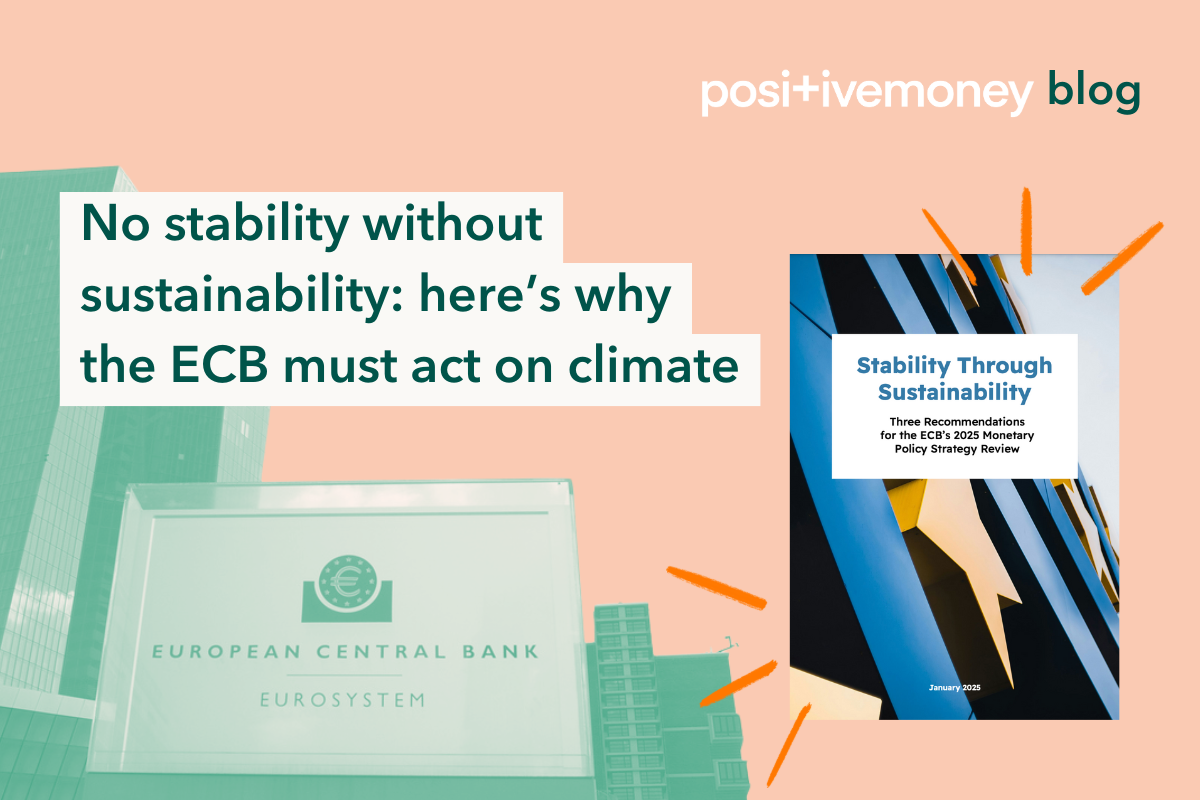
The future of moneyEU
12 January 2026
Civil society demands an ambitious climate focus ahead of the 2025 review of the ECB’s monetary strategy
Today, just days ahead of the ECB Governing Council's crucial monetary policy meeting in Frankfurt on 30th January, we, alongside 40 other European civil society organisations and 20 experts, have delivered an open letter to the Governing Council. This letter urges the ECB to integrate more ambitious climate action into its monetary policy framework, particularly as the central bank concludes its current strategy review in 2025.
The ECB, as the central bank for the Eurozone, exerts significant influence on the economy through its monetary policy tools. We, and the other signatories, believe that these tools must be aligned with climate and sustainability goals to ensure both economic and environmental stability.
The ECB itself has acknowledged that a faster and more orderly transition is crucial for both price and financial stability. However, as climate change and nature degradation intensify, their impact on monetary policy and the entire financial system will inevitably worsen. Furthermore, Europe's continued reliance on fossil fuels leaves us all vulnerable to future price shocks, as witnessed by the recent period of high inflation.
The open letter emphasises that the ECB's current approach does not adequately account for the escalating risks posed by climate change and nature degradation, which also jeopardise the EU's ability to achieve a just green transition.
We are calling upon the ECB to implement concrete changes that will make its monetary policy more environmentally responsible, focusing on three key areas:
Green refinancing operations: The letter proposes the introduction of targeted longer-term refinancing operations (TLTROs) specifically designed to support green investments. These would incentivise financial institutions to lend to sustainable projects and businesses.
Updated collateral framework: We urge the ECB to exclude assets from companies that significantly contribute to environmental harm from its collateral framework. This means the ECB should not accept these assets as guarantees when lending to banks, thereby reducing support for polluting industries.
Tilting asset purchase portfolios: The letter calls for a shift in the ECB's asset purchases, prioritising securities from companies with sustainable practices and divesting from those with negative environmental impacts. This aims to redirect the flow of funds away from environmentally harmful activities.
These demands are further elaborated upon in our recently published Manifesto, "Stability Through Sustainability," which outlines why the ECB must go beyond its current climate roadmap and adopt more ambitious measures.
The manifesto argues that by addressing environmental risk effectively, the ECB is better positioned to fulfil its primary mandate of maintaining price stability.
While the ECB has acknowledged the link between climate change and financial stability, its current monetary policy does not actively encourage sustainable investments or adequately disincentivise polluting activities. The ongoing review of its monetary policy strategy presents a critical opportunity to align monetary policy with EU environmental objectives and drive the green transition.
We are prepared to assist the ECB in developing an effective approach, as we firmly believe that a healthy planet and a stable economy are inextricably linked. Inaction on the climate and nature crises poses a threat to both price and financial stability, undermining the ECB's very own mandates.
